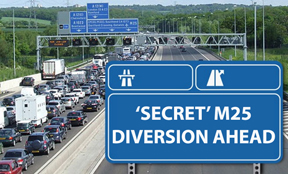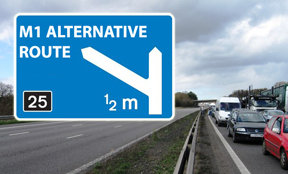
Parking scams in the UK have become more sophisticated, targeting drivers in both public and private parking areas. From fake fines to bogus online bookings, these scams can result in unexpected penalties or even data theft.
Here’s a guide to the most common parking scams, how they operate, and tips on protecting yourself.

1. Fake Parking Fines
One of the most widespread parking scams involves issuing fake parking fines. Scammers often pose as parking enforcement officers or use fake private parking company names to issue fines on parked cars. These notices usually look quite legitimate, with company logos and official-sounding language, pushing drivers to pay quickly without questioning. Payments are often directed to fake websites that look convincing but are designed to steal both the fine payment and financial details.
How to Avoid It:
- Verify the ticket source by checking if it’s from an official council or a reputable parking company.
- Look for accurate contact information on the ticket, as legitimate firms provide working customer service numbers.
- If you’re unsure, reach out to the council or company that oversees the car park to confirm the ticket’s validity.
2. QR Code Scams at Payment Machines
Many UK car parks now offer the convenience of digital payments via apps or QR codes. Scammers have taken advantage of this by placing fake QR code stickers on payment machines. Scanning these codes can lead drivers to counterfeit sites that look legitimate but capture payment and personal information.
How to Avoid It:
- Only scan QR codes that are on official signage or directly on the machine.
- Use parking payment apps directly where you can manually enter the parking zone code.
- If possible, pay through the machine itself rather than relying on external codes or third-party apps.
3. Fake Tow Truck Scams
The tow truck scam involves scammers posing as council or private parking authorities, claiming your car is due for towing due to a violation. They demand an on-the-spot payment to avoid towing and impound fees, urging drivers to pay immediately. In some cases, they may even attach towing devices to make the situation appear more credible.
How to Avoid It:
- Insist on an official written fine if they allege a parking offence, as councils rarely demand on-the-spot payments.
- Contact your local council or police to check whether the tow truck is acting under official instructions.
- Official enforcement personnel will have identification and records with local authorities.
4. Disabled Badge Scams
Scammers often exploit disabled parking badge holders by creating fake sites that claim to provide discounted badges or easy renewals. These sites capture payment and personal information. Additionally, criminals may steal disabled badges from parked vehicles, reselling them illegally and leaving the original owner unable to park in reserved spots.
How to Avoid It:
- Only apply for or renew disabled badges through the official government website.
- Avoid websites offering badges or discounts; legitimate badges are issued by local councils.
- Report any stolen badge immediately to the local council and police.
5. Phone Scams Impersonating Council Officers
In this scam, drivers receive phone calls from individuals claiming to be council officers, informing them of unpaid fines. These callers often create a sense of urgency, pushing the driver to pay immediately over the phone to avoid further penalties. They may use personal information, such as the driver’s address or car details, making the call seem more credible.
How to Avoid It:
- If you receive such a call, hang up and contact the council directly using official contact numbers listed on your council’s website.
- Councils do not typically request fine payments over the phone.
- Avoid sharing personal information with unknown callers.
6. Online Parking Reservation Scams
A growing scam targets drivers booking parking spaces online, particularly for airport parking or central city locations. Scammers create fake booking sites that closely resemble legitimate platforms, leading drivers to pay for a parking space that does not actually exist. Upon arrival, there is no record of the booking, and a refund may never materialise.
How to Avoid It:
- Use only well-known and established parking reservation websites.
- Check reviews and verify the site’s legitimacy before entering payment information.
- Avoid websites that don’t offer secure payment options, such as verified payment gateways.
7. Car Park 'Helpers' and Broken Machine Scams
Some scammers pose as helpful car park attendants in high-traffic areas, particularly in tourist spots or city centres. They may offer to assist with parking or collect fees, claiming the parking machine is broken or accepting payment “on behalf of the car park.” These scammers pocket the money and leave the driver without a valid parking ticket. In other cases, scammers tamper with machines to appear broken, then direct drivers to pay them directly.
How to Avoid It:
- Only pay at official machines or through recognised parking apps.
- Politely decline any unsolicited assistance with payment.
- If a machine appears broken, contact the parking provider directly for advice on payment options.
Tips for Protecting Yourself from Parking Scams
The best way to protect yourself from parking scams is by remaining cautious and vigilant. Always use official channels for communication and payment, and double-check any suspicious fines or payment requests. UK parking enforcement operates under established protocols, so if something feels unusual, it could be a scam. By staying aware and following these tips, you can better safeguard against falling victim to parking scams.
Most read motoring content
Take a look at more of our top motoring-related content here...
-
How much did my car tax go up in April 2023?
-
My driving licence has expired - can I keep driving while I wait for a new one?
-
Do I need an international driving permit for France and Spain
-
Are car washes still open during the hose pipe bans?
-
Will I get a speeding ticket after being flashed
-
Will I get a speed awareness course instead of points?
-
How to spot a fake undercover police car
-
Can I drive in sliders in the UK - with or without socks
-
Can I vape in a car with kids in it?
-
How old are my tyres - find out instantly here
-
Do I need an electric car licence and driving test in the UK?
-
What happens to a car when the owner dies?
-
How can I find out who owns a car
-
Can I book cancelled driving tests to beat the rush?
-
How far and how fast can I drive on a space saver spare wheel
-
Can I be fined if the car park ticket machine is not working?
-
Is the M6 Toll Road free in the evening and at weekends?
-
How much is the Tamar Bridge toll and when do I need to pay it?
-
How can I find out who owns a car
-
What are the black dots on my windscreen for?
-
Will I get a 6-month MOT extension because of the new Omicron variant this Christmas?
-
Electric car charging points at UK airports for public use - 2023
-
Are electric scooters a good Christmas present - find out the driving rules here
-
Secret parking offences you're committing revealed
-
Do I need to tell the DVLA about having Covid-19?
Get our latest motoring and travel updates here
Author: Pete Barden:
Twitter: @pete_barden
Pete Barden is a qualified journalist who has written and produced for publications including The Sun (thesun.co.uk), New Statesman Media Group, Whatcar? (Whatcar.com) Stuff Magazine (Stuff.tv), Fastcar Magazine (Fastcar.co.uk), Maxim Magazine and UK broadcast stations within the Heart network (Formerly GCAP). Pete specialises in motoring and travel content, along with news and production roles. You can find out more about Pete Barden on LinkedIn.











